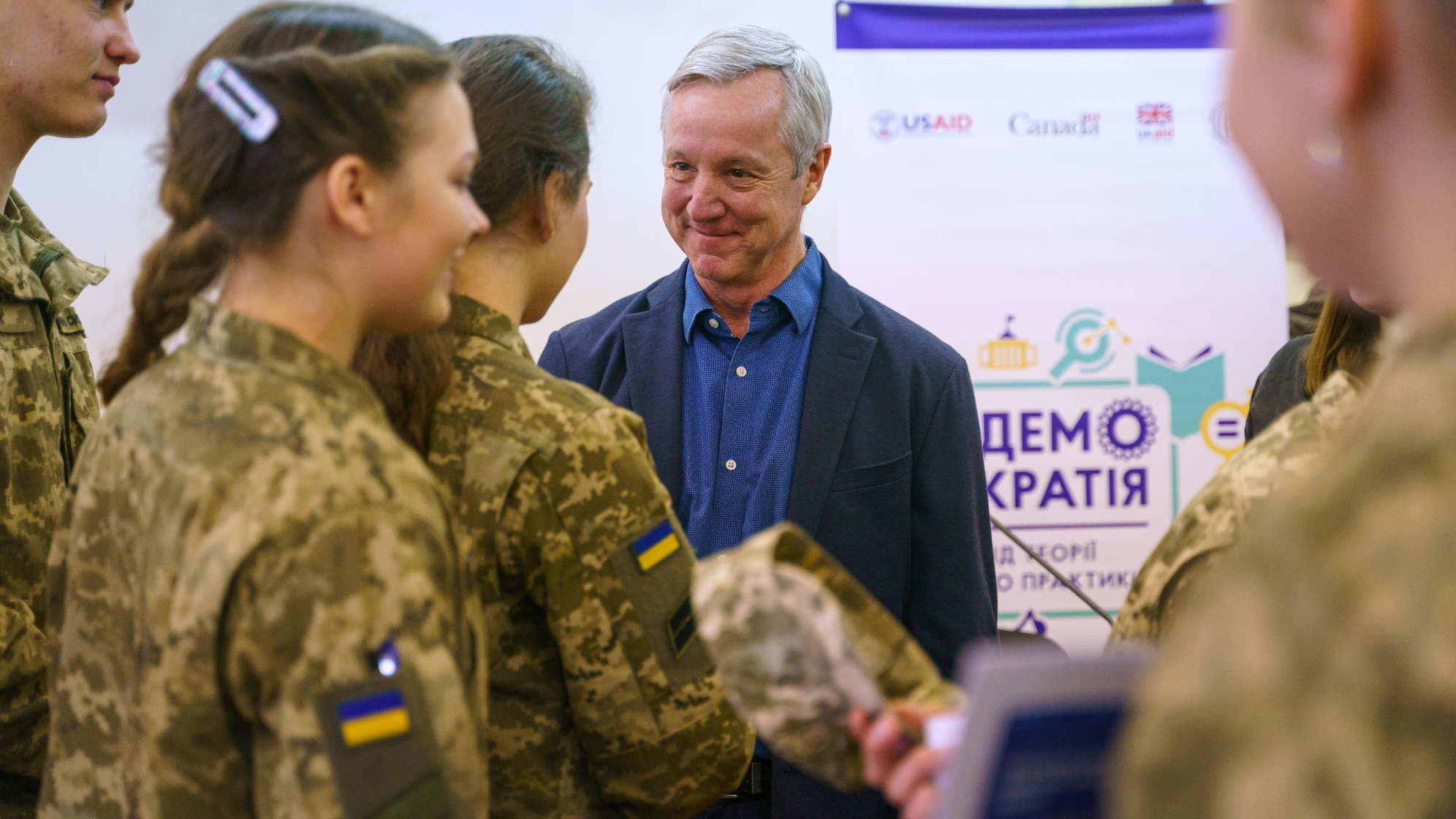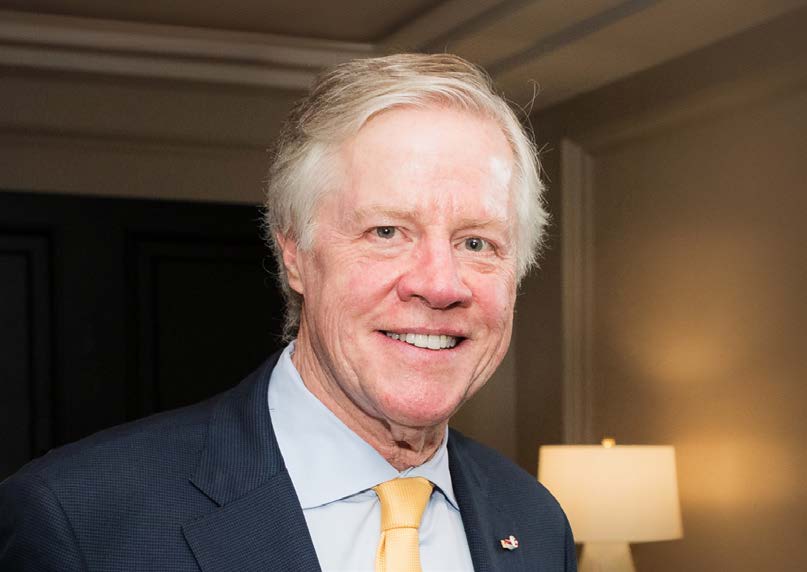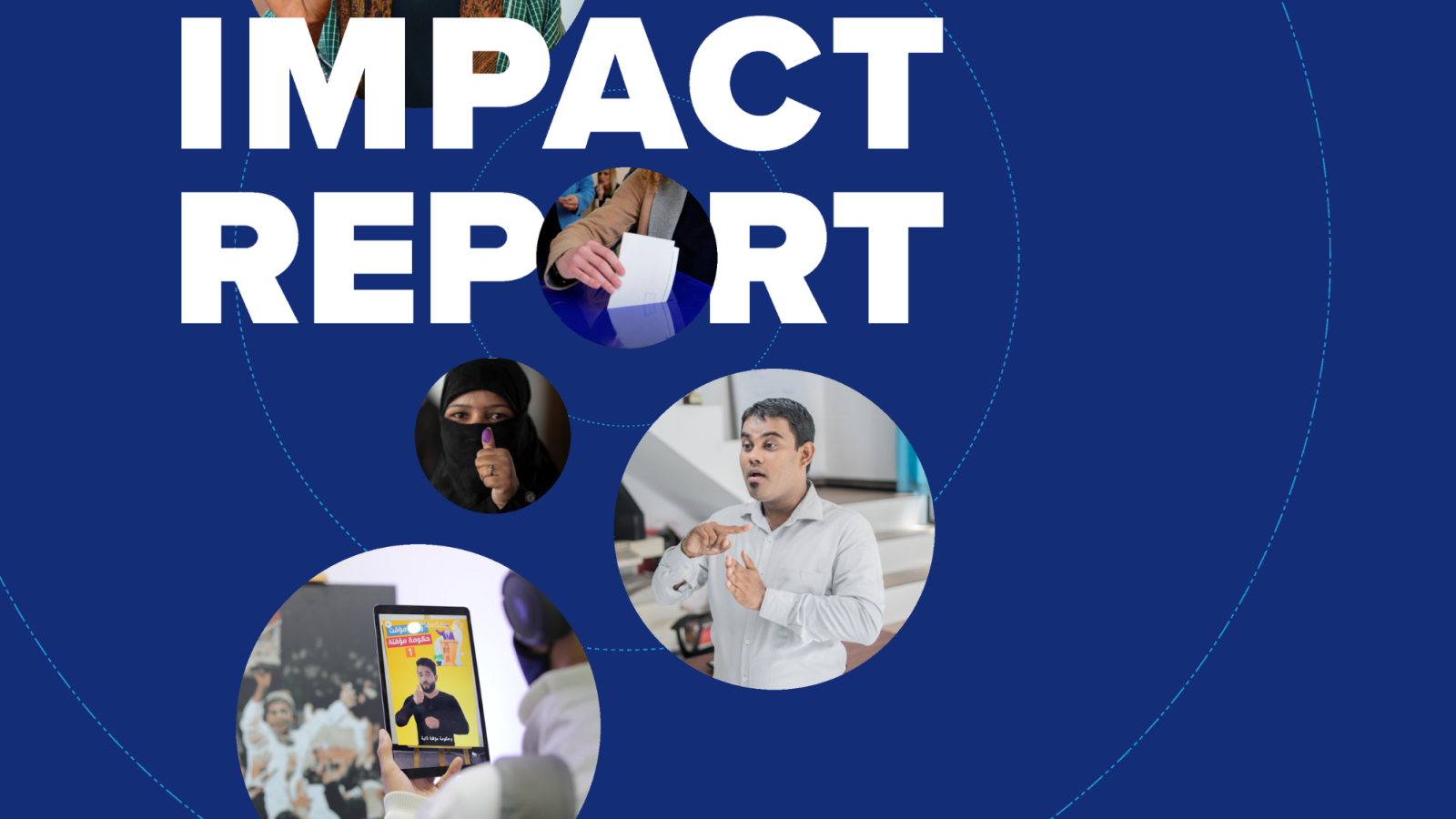
2023 IFES Impact Report
President's Letter: A Stress Test for Democracy

This year is a historic one not just for elections, but in all likelihood for democracy. Voters will cast ballots in countries representing almost half the human population. By one measure, this is a triumph for democracy and freedom: today there is a global consensus that political legitimacy comes from the people through the ballot box.
At the same time, elections are also being used as a tool by dictators; a charade in authoritarian countries. The votes don’t matter and the results are pre-determined— but the dictators feel obliged to create the pretense of democracy. “Elections” this year in countries such as Russia and Iran are actually another affirmation of democracy’s victory over authoritarianism in the hearts and minds of people around the world.
And yet the critical elements of democracy—free and fair elections, opposition political parties, independent judiciary, free press, robust civil society— are under attack in democracies across the globe. In every region of the world, countries that had once been seen as democratic success stories have now become autocracies, robbing their people of their rights and freedoms. Even strong democracies are facing attacks and experiencing backsliding.
Why is this happening and how do we reverse this autocratizing trend? For many years, democracy assistance focused
on building democratic infrastructure – parliaments, judiciaries, election commissions etc. – without adequate
attention paid to the ability of democratic governments to meet the basic needs of their populations. Institutions that were strong on paper were weak in practice.
Countering democratic backsliding requires a multi-faceted approach that draws on strategic perspectives tailored to each national context. Priorities include seeing democracy assistance not as a pillar of development assistance but rather as a necessary foundation on which the success of all other development assistance depends; having a long-term perspective with a focus on building resilience within democratic institutions and societies; and ensuring democratic governments are meeting the basic needs of their people.
This challenge is at the heart of IFES’s mission: together we build resilient democracies that deliver for all.
This is the work we are advancing at IFES, and in these pages, you will find examples of how we are making a difference.
Sincerely,
Anthony Banbury
President and CEO
Board Co-chair Letter: Strategies for Resilience
In a time when threats to democracy proliferate, what gives us hope as democracy champions?
One reason for optimism in 2024: the historic number of people casting ballots. This simple fact is a testament to the enduring appeal of democracy. But with threats to free societies proliferating faster than ever before, it is not enough to have faith in democracy. We need strategies to protect it.
For nearly forty years, IFES has set the standard for technical democracy support, contributing to democratic resilience in more than 140 countries worldwide.
The IFES strategy centers on supporting strong election institutions capable of facilitating credible elections. IFES also helps in the fight against political corruption, works to empower all people to participate safely and equally in their political process, and innovates to ensure that technology is a force for rather than against democracy.
This has proven to be an impactful formula. IFES has been successful in identifying the challenges facing democracy as they emerge, and with their local partners has taken action to meet them. Pairing strong global analysis with a hands-on approach enables IFES to deliver real results for democracy.
The IFES strategy offers a formula for building democratic resilience in the places where it is most urgent. The dedication, professionalism, and resolve of the IFES team worldwide illustrate how that strategy can be transformed into impact. This
impact, which you will read about in these pages, gives us grounding in our hope that 2024 will be a turning point in the story of democracy’s resurgence.
Sincerely,

Amb. William C. Eacho
Chair, IFES Board of Directors

Hon. M. Peter McPherson
Co-chair, IFES Board of Directors










